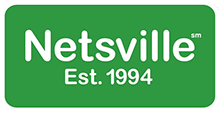Internet cookies rank as probably one of the most misunderstood aspects of web browsing. Are they malicious files that engulf your computer with unneeded data, clogging up its arteries with harmful intent or helpful files that make your internet surfing an enjoyable treat? To answer that question, let’s take a closer look at the what internet cookies really cater to.
What Are Cookies?
Microsoft defines cookies as “small text files that websites put on your computer to store information about you and your preferences.” Seems innocuous enough but in an age when privacy and data gathering have become topics of controversy and, in some cases, justified paranoia, it’s easy to see why they could possibly be viewed as a threat. The underlying purpose of most cookies are to save website preferences and information, providing a more streamlined web experience. For instance, whenever a website that you frequent saves your login username and password allowing instant access whenever you visit it, you can thank the cookie responsible for this convenience. Other examples would be saved eCommerce preferences or forum settings that comply to your personal tastes.
Conversely, there are many third-party cookies that you can unwittingly pick up from website ads that track your internet use and online habits for targeted marketing. Examples of this would be instances when you order a sandwich from a particular restaurant chain and then suddenly ads for that chain start appearing on the sites you browse often (or when you search for Disneyland Paris vacation information and then you’re suddenly plagued with ads for Mickey Mouse berets everywhere you go). These are commonly the types of cookies that contribute to their negative perception.
The Pros and Cons of Deleting or Blocking Cookies
Generally speaking, cookies will not harm your computer. In yester years, cookies could bog down your browser experience with accumulated data that would impede your access over time. Today, that is not really the case anymore and such cookie files remain relatively small; however, in some cases, not regularly clearing them out can adversely affect your net activity such as when a website has an update that old cookies may conflict with. Deleting cookies whenever a page doesn’t quite load properly is not only a good first step solution to such an issue but can also serve as a good basis on how often it is time to purge your cookie data. Doing so on a daily or weekly schedule would thus be unnecessary and would only serve to create an avoidable effort that obligates you to re-enter all your preferences and login information every time you visit your regular sites.
Notwithstanding, many will claim that regularly deleting all your cookies is not enough and that it would be best to simply block them all. This is a misperception that can highly affect your online experience. Blocking all cookies, including those annoying third-party cookies, can prevent you from accessing eCommerce sites such as Amazon, block you from posting in forums, or event prohibit you from visiting certain sites altogether. Furthermore, in consideration of the privacy concerns over third-party cookies, online tracking methods have evolved significantly over the years in lieu of their reliance on cookies. Some of these methods include canvas fingerprinting which uses an HTML5 canvas element to track users. Ultimately, such tracking has unfortunately become an expectation of internet browsing and deleting or blocking cookies will do little to inhibit this from happening.
A balanced solution is available by taking control of which cookies you elect to keep or block by selecting different privacy options in your browser. Setting it to low would block most third-party cookies while medium will also block certain first-party cookies. You can also individually select which cookies you’d like to delete and/or keep based on the referring URL or check the website options that pop up during your browsing session informing you that access to the site or site features requires the enabling of cookies. Nearly all antivirus software will also delete offending third-party cookies when they are run in most cases.
How to Manage Your Cookies
Every web browser has its own unique settings and methods available to manage, block, or delete cookies. The following links should provide good starting points for some of the most popular options:
How to View Cookies and Set Privacy on Explorer, Firefox, Chrome, and Safari
How to Delete Cookies on Chrome, Firefox, Explorer, iPads, and Galaxy Tabs
Based in Rochester, New York, Netsville is an Internet Property Management company specializing in managing the Digital Marketing, Technical, and Business Solutions for our customers since 1994. For more information, please click here.






